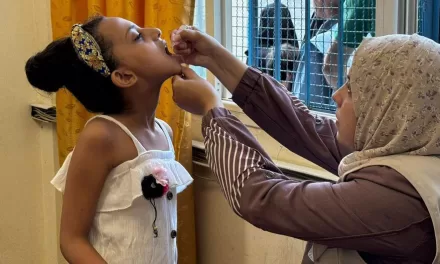ATLANTA—Five years after the world-changing COVID-19 pandemic, experts are raising concerns about whether the United States is prepared for the next public health crisis. The scars left by the pandemic remain fresh, and while the immediate danger of COVID-19 has receded, new threats loom on the horizon.
Lessons from COVID-19
On March 2, 2020, Georgia confirmed its first cases of COVID-19, marking the beginning of a public health battle that ultimately resulted in over 2 million confirmed cases and more than 38,000 deaths in the state alone. The pandemic tested public trust in institutions like the Centers for Disease Control and Prevention (CDC), based in Atlanta, and reshaped the way Americans think about health security.
While COVID-19 continues to claim lives—164 Georgians reportedly died from the virus in the most recent three-month period—the greater threat today may be the loss of institutional preparedness and public trust.
Political and Institutional Challenges
The CDC, once regarded as the gold standard for global health expertise, is facing a new set of challenges under the Trump administration. Recent budget cuts and staffing reductions have sparked concerns among public health officials about the agency’s ability to respond effectively to future crises. Hundreds of employees have been laid off or resigned, and restrictions on CDC communication with outside partners like the World Health Organization have raised red flags among health experts.
Dr. Anne Schuchat, a retired CDC official, emphasized the importance of a coordinated national response. “Having a national strategy and the coordination of all states can be lifesaving for fast-moving threats like pandemics,” she said.
Emerging Health Threats
Even as the CDC grapples with internal turmoil, new health threats are emerging. A strain of avian influenza has begun spreading from cows and poultry to humans, raising fears of another pandemic. Meanwhile, a recent measles outbreak claimed the life of an unvaccinated child in Texas, underscoring the risks posed by declining vaccination rates.
Experts warn that without a fully functional public health system, the country may struggle to respond effectively. “The CDC has some of the most knowledgeable people in the world on infectious diseases, but if they aren’t empowered to act, we could be in serious trouble,” said John Besser, a former CDC deputy chief.
Rebuilding Trust and Preparedness
The COVID-19 pandemic exposed weaknesses in the nation’s public health infrastructure, including issues with testing delays and inconsistent messaging. While the CDC played a critical role in developing vaccines and providing guidance, it also faced criticism for early missteps, such as the flawed rollout of its initial test kits.
Dr. Hugo Scornik, a pediatrician in Georgia, acknowledged these challenges but stressed that rebuilding public trust is crucial. “I hear the distrust in conversations with my patients. But at the same time, we can’t afford to weaken institutions that save lives,” he said.
The Road Ahead
No one can predict when the next pandemic will strike, but experts agree that preparation is key. Reducing the CDC’s capacity at a time when new infectious diseases are emerging could prove dangerous. As Dr. Besser put it, “It’s like looking for meteors that might strike Earth—you really can’t stop looking for them.”
Disclaimer:
This article is based on publicly available information and expert opinions. The views expressed do not necessarily reflect those of any government agency or institution. Readers are encouraged to consult official sources for the latest public health guidance.












